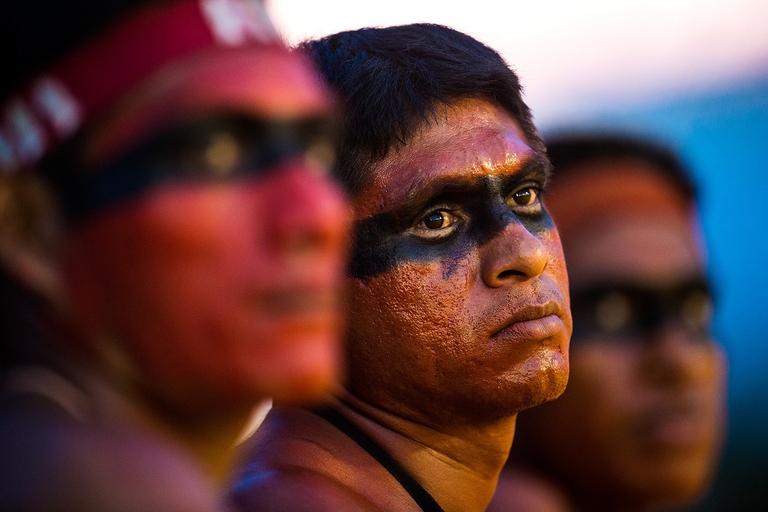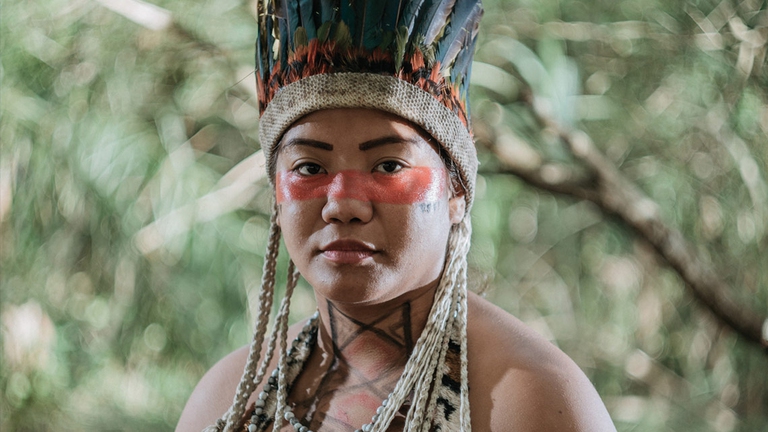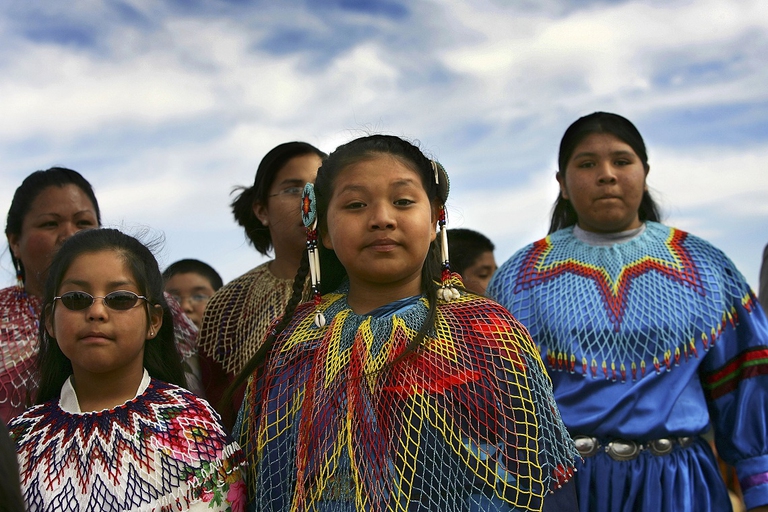
A special report from the Yuqui territory delves deep into the dreams, challenges, joys and sadness of one of Bolivia’s most vulnerable indigenous groups.
There are more than 5,000 communities around the world commonly defined as “indigenous”. The UN celebrates this diversity as a world heritage that must be preserved.
In an ever more globalised world where products and ideas tend to conform, diversity is often seen as an obstacle or something that must be smoothed out.
But, there are still many communities around the world that are trying to resist cultural levelling and are keeping ancient traditions and ways of life alive that have different social, cultural, economic and political characteristics compared to dominant societies. To celebrate this wonderful human diversity in December 1994 the General Assembly of the United Nations proclaimed the 9th of August as the International Day of the World’s Indigenous Peoples.
In spite of the uniqueness of every ethnic group and the substantial differences among them, all indigenous peoples have a common problem: the protection of their rights. After centuries of oppression, genocide, colonisation and “exportation of cultures”, the international community has recognised the need to introduce special measures to protect their rights. In 2007 the UN adopted the Declaration on the Rights of Indigenous Peoples, the most complete instrument that gives unprecedented importance to collective rights in international human rights law.
The declaration was adopted by the UN General Assembly exactly ten years ago, the 13th of September 2007. This anniversary, a fundamental step in cultivating respect for native populations, is the focus of this year’s international day. The document establishes the right of indigenous peoples to maintain and reinforce their institutions, cultures and traditions as well as their right to adopt the form of development most appropriate to their needs and aspirations. The Declaration guarantees (at least on paper) indigenous people’s right to education, health, livelihood and language, indigenous populations also enjoy the right to self-determination. In the last ten years a number of important victories have been achieved thanks to the Declaration, but notwithstanding these achievements there is still a large gap between the formal recognition of indigenous peoples and the implementation of adequate policies.
The United Nations has declared 2019 the International Year of Indigenous Languages and this year’s edition of the international day is also dedicated to the objective of preserving the latter, as well as safeguarding the rights and well-being of those who can keep them alive. The foundation of the uniqueness of the 5,000 native communities around the world are there many languages, which not only define their social and cultural identity, but allow them to hand down their customs, knowledge and history. Of the 6,700 languages spoken around the world the vast majority are indigenous. A language becomes extinct every two weeks and whilst the number of people who speak dominant, or “metropolitan” idioms – such as English, Chinese and Spanish – increases, encroaching on the spread of more peripheral ones, between 50 and 90 per cent of languages could disappear by the end of this century. We’re facing the inexorable loss of native peoples’ cultural heritage and there’s little left to do but act to try and save it.
It’s already clear that it’s necessary to involve indigenous representatives at every decision-making level. The first indigenous man to participate in a UN meeting was Ted Moses, a former Grand Chief of the Grand Council of the Crees, a tribe native to Canada,min 1989. He denounced the effects of racial discrimination on the economic and social conditions of his people. Despite public declarations, native people’s rights are systematically trampled on, like in Brazil, where the hydroelectric Belo Monte dam was built without consulting local communities. Indigenous peoples also guard fundamental secrets: they know how medicinal plants should be used and understand the language of nature, which many of us have stopped listening to. Reason more to keep preserving these cultures.
Siamo anche su WhatsApp. Segui il canale ufficiale LifeGate per restare aggiornata, aggiornato sulle ultime notizie e sulle nostre attività.
![]()
Quest'opera è distribuita con Licenza Creative Commons Attribuzione - Non commerciale - Non opere derivate 4.0 Internazionale.
A special report from the Yuqui territory delves deep into the dreams, challenges, joys and sadness of one of Bolivia’s most vulnerable indigenous groups.
The Yuqui people of the Bolivian Amazon fight not only to survive in the face of settlers, logging and Covid-19, but to preserve their culture and identity.
Jair Bolsonaro is accused of crimes against humanity for persecuting indigenous Brazilians and destroying the Amazon. We speak to William Bourdon and Charly Salkazanov, the lawyers bringing the case before the ICC.
Activists hail the decision not to hold the 2023 World Anthropology Congress at a controversial Indian school for tribal children as originally planned.
Autumn Peltier is a water defender who began her fight for indigenous Canadians’ right to clean drinking water when she was only eight years old.
The pandemic threatens some of the world’s most endangered indigenous peoples, such as the Great Andamanese of the Andaman and Nicobar Islands in India.
The Upopoy National Ainu Museum has finally opened. With it the indigenous people of Hokkaido are gaining recognition but not access to fundamental rights.
A video shows the violent arrest of indigenous Chief Allan Adam, who was beaten by two Royal Canadian Mounted Police (RCMP) officers.









